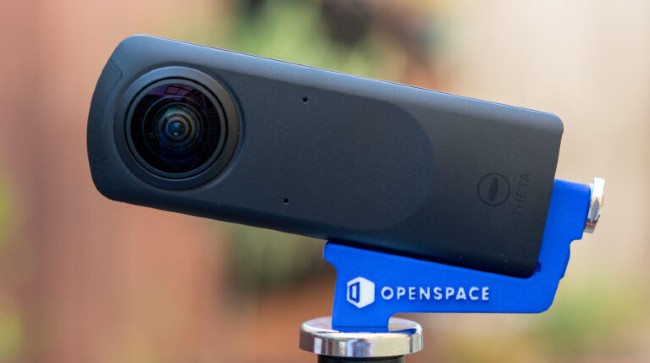 From his vantage point as co-founder and managing partner of Taronga Ventures, Jonathan Hannam has a clear line of sight into how innovation is transforming the real estate industry in Asia Pacific.
From his vantage point as co-founder and managing partner of Taronga Ventures, Jonathan Hannam has a clear line of sight into how innovation is transforming the real estate industry in Asia Pacific.
Hannam’s firm actively invests in companies that enhance the way properties are designed, procured, financed, developed and managed across all sectors through the flagship RealTech Ventures Fund. The platform’s key backers include Mitsubishi Corporation, Nomura Real Estate Development, PGIM, CBRE and Grosvenor.
Ahead of the release of this year’s Mingtiandi-Yardi tech adoption survey as part of our Property Innovation Forum 2021 later this month, Mingtiandi spoke with Hannam about the poll’s findings and about Sydney-based Taronga’s investments in real estate technology firms around the globe.
62 percent of survey respondents said the pandemic has had a significant or major impact on their plans for their workplaces, and 58 percent said it was having the same level of effect on their portfolios. Does this match with your experience at Taronga Ventures?
That underestimates the impact of the pandemic. Shopping centres and commercial buildings have low occupancy rates across the region, but logistics space is actually going much better and we’re also seeing residential markets in many countries at incredible rates. Pricing is increasing in many markets.
Some sectors are impacted and some sectors are benefiting more. The key is to look beyond COVID. What we like to do is actually think about what has changed because of COVID.

A lot of real estate companies are investing in technology in the wake of the pandemic. In what ways can adopting technical systems help to limit risks in real estate?
What we see is that there are many emerging tech companies that can provide better transparency among developers. We see digitalisation companies we’ve invested into. If corporates have the right mindset, they should use these technologies to know what’s happening in their assets.
One of our early investments was into a firm out of San Francisco called OpenSpace. Through the use of an off-the-shelf 360-degree camera, OpenSpace generates a digital rendition of a construction site that is automatically mapped to plans and building information modelling. The technology enables remote viewing of construction sites and, through its sophisticated AI tools, allows automated progress tracking, virtual reviews by experienced construction experts and object search capability.
OpenSpace has now expanded into more than 40 countries, with teams on the ground in Asia to support customer expansion.
We recently invested into Voyage Control out of the United Kingdom. This is a SaaS platform that allows for better control and transparency of delivery scheduling and logistics, by managing capacity inbound through the supply chain, on site and at the gate. This solution enables construction sites to proactively manage, optimise, track and communicate material deliveries, and again many of our development partners are in discussion with Voyage Control through their team in Singapore.
71 percent of respondents said they have either secured sustainability certification for their workplaces or are in the process of obtaining it. Has this drive for sustainability had an impact on tech adoption in real estate?
The drive for sustainability is impacting tech adoption in a number of ways. Firstly, we are seeing the capital sources that are backing real estate are all demanding change. They want their managers to be at absolutely carbon zero. Some have targets below this. There’s a lot of competition for capital, and for many of the managers, in order to be attractive for capital, they have to be at the absolute forefront of sustainability. I think the 71 percent is a very relevant figure, because what will happen in ’28, ’29 if you don’t have carbon net zero, those global sources of capital will look to other groups. You will not be able to do development unless you have a net-zero target.
Business process automation (60 percent of respondents) and big data analytics (58 percent) were the two technologies chosen most often as the top priority for adoption within the next three years. What does this show you?
How to improve the efficiency of the way we run real estate. There is a lot we can do in that space. If you think about the amount of reporting that developers and real estate owners have to do, there’s a lot of technology that can make that process simpler. Big data analytics is fascinating. With all of our assets, we are seeing more and more sensors, there are more devices that are tracking the movement of people, and as owners of real estate, we need to have a clear digital roadmap for how we manage that information.
According to groups like Deloitte, only 60 percent of the real estate corporates have a full digital transformation roadmap, and yet if you think about it, we have a huge amount of data coming from these assets that needs to be managed correctly. We see that as quite a risk to data and service security — an area that we spend a lot of time talking to our investors about because we cannot have that information exposed to hackers or third parties. Those two areas are very, very critical for the growth and scaling of real estate technology.

OpenSpace, one of Taronga’s portfolio companies, uses cameras for 3D modelling of construction projects
You mentioned that technology is enabling mall developers to create a more attractive shopping experience. Do you have some examples of how this is being put into action in Asia Pacific?
The retail sector is under immense pressure, and the need to further enhance the shopper experience has perhaps never been more critical. In this space we have seen some incredible collaborations with a number of our investments.
As malls reopen, we have been exploring solutions that provide a click-and-collect service that allows for customers to order online and collect or return goods in an efficient and contactless manner. Two of our investments, Groundfloor and Spacecube, have worked together to provide a flexible click-and-collect solution that can be positioned at mall entrances and in car parks, providing easy access to customers, and due to the flexible nature of the modular construction, the solution can be repurposed if demand changes.
Spacecube has also provided innovative pop-up retail solutions, as well as open-air dining facilities that are proving to be attractive to shoppers as they return to malls.
We have also invested into Omnyfy, which is getting great traction in this period. Whilst larger retail tenants all have a digital presence, we have seen that for many smaller retailers the concept of an online marketplace was not a key priority. Through the Omnyfy digital marketplace, we have been able to support both the shopping centre owner as well as the smaller retail tenants with a solution that delivers additional revenue through an online marketplace.
You said that you see technology having the biggest impact at the asset level, where it can be used to enhance operations and cut costs. Is this mostly about property management, asset management or both? What systems are proving most effective in this regard?
For all of our investors, they are less focused on the fund-level returns and more on our ability to drive change at the asset level that will have a real and measurable impact on the performance of their own portfolios. This can be in the
form of either reducing operational costs or enhancing current revenue, and it impacts corporates at a strategic level and also at the property and asset management level.
For many of our investors, there was strong interest in solutions that could provide a seamless solution for access control, and thus we have spent many months researching the various opportunities before selecting a business out of New York called Zerv.
There has also been a lot of discussion from each of our investors regarding a true digital twin solution that pools together all of the various IoT and software solutions and concepts that impact a building and thus have a direct impact on leasing, asset and property management. A key area of focus for us as investors is to ensure that the solution can demonstrate a true ROI. We will shortly be announcing an investment into this space.
Leave a Reply